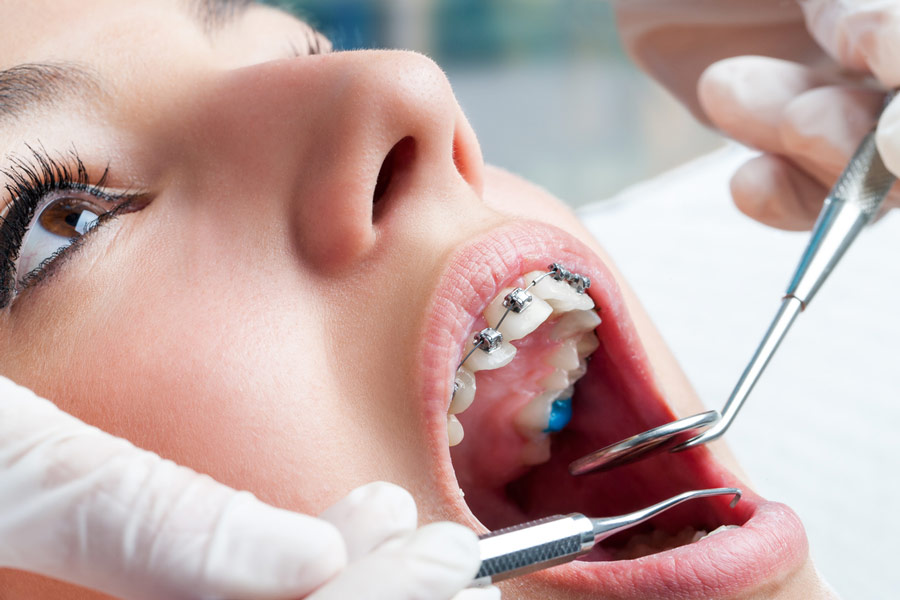 Dentists and orthodontists practice within the same general area. Both are medical personnel who work to ensure that their patients enjoy improved health regarding everything relating to their oral health. Orthodontists are doctors who specialize and focus on correcting bites, occlusion, and teeth straightnesswhile dentists are doctors that deal with the teeth, gum, nerves, and jaw.
Dentists and orthodontists practice within the same general area. Both are medical personnel who work to ensure that their patients enjoy improved health regarding everything relating to their oral health. Orthodontists are doctors who specialize and focus on correcting bites, occlusion, and teeth straightnesswhile dentists are doctors that deal with the teeth, gum, nerves, and jaw.
Whether it is minor issues with a tooth or a gum within your mouth or a major overhaul; oral health isn’t something to be taken lightly.
Basic Things to Know Regarding Dentists and Orthodontists
Both dentists and orthodontists have similar educational backgrounds, and both fields require a bachelor’s degree before they can apply for dental school. If successful, applicants must then begin and complete a four-year medical program,and by graduation, a general dentist can go on to begin practicing. Dentists can either earn a D.D.S (Doctor of Dental Surgery) or D.M.D (Doctor of Dental Medicine),but both degrees rely upon the same curriculum.
To become an orthodontist, the licensed dentist must then undergo a two- or three-year residency program in orthodontics at an American Dental Association approved university affiliated program. Orthodontists are certified by the which is the only orthodontic specialty board recognized by the American Dental Association.
What are Your Dental Issues and Needs?
Usually, your dentist is the one that takes care of your primary dental care,and they will be able to diagnose, treat and manage the health of your mouth; this usually includes performing regular dental work like check-ups, cleanings, X-rays and so on. And your dentist can also fill cavities, remove or repair problematic teeth, or make models for dentures.
Some to finish up additional work and offer services that an orthodontist offers but if you require any treatment or procedure that is outside the dentist’s area of expertise, then they will refer you to an orthodontist who can handle your case. For example, should your teeth need realignment, your dentist will have to refer you to an orthodontist.
In Plainer Terms, a Dentist Works on Your Mouth
 Your dentist can be thought of as a ‘.’ They are well versed in the numerous diseases and conditions that could potentially affect your teeth, gums,and mouth,and they know how to treat and prevent any such reemergence because of any of those diseases.
Your dentist can be thought of as a ‘.’ They are well versed in the numerous diseases and conditions that could potentially affect your teeth, gums,and mouth,and they know how to treat and prevent any such reemergence because of any of those diseases.
With that in mind, it is important not to wait until you are in excruciating pain or you think something is wrong before visiting your dentist. It is good to make frequent trips to your dentist because it can help you keep your teeth clean and germ-free and they can help you find solutions to problems you may be experiencing before they get blown out of proportion.
A dentist can treat a variety of different conditions and problems including, but not limited to root canals, fillings, dental crowns, veneers, bridges and even more cosmetic work like teeth whitening.
An Orthodontist Works on Straightening Teeth
Orthodontists,on the other hand, work on the extraordinary task of teeth and jaw alignment . They diagnose, prevent, and treat malocclusions; otherwise known as bad bites. Technically, orthodontists are actually dentists too because they had gone through the same training and licensing process with the main difference being the extra 2 – 3 years of specialist learning they put it; they have a very unique job.
You should seek out an orthodontist if you suffer from crooked or crowded teeth or a misaligned jaw or a ‘bad bite.’ Usual means of orthodontic treatments include Invisalign, headgear, braces,and retainers.
Depending on how large your primary dentist’s office is, he or she may have an orthodontist as a partner working onsite in the office or they could refer you another off-site.
What are the Similarities Between a Dentist and an Orthodontist?
The primary similarity between a dentist and an orthodontist is that they both have a focus on taking care for the mouth. Orthodontists can work easily in a dental office and provide similar care to that given by a dentist making them very similar in this regard. They are also both considered doctors,and they work on the teeth and gums.
What are the Differences Between a Dentist and an Orthodontist?
As for the differences between an orthodontist and a dentist, there are a lot more of those than there are similarities. Orthodontists need to get additional schooling after becoming dentists, which is a similar situation to doctors who need additional schooling to become surgeons after becoming doctors.
Another difference between them is that orthodontists focus on helping their patients with problems like teeth alignment, bite improvement, or simply fitting them into corrective braces and devices.
Why it is Important to Keep and Maintain Healthy Oral Care
By taking care of your teeth, you will enjoy improved health, a better appearance, and even improved confidence thanks to your bright and pearly white smile. But beyond that, you will be longer by avoiding tooth decay, periodontal disease,and other mouth diseases. These may seem like small conditions,but they could cause one to stand the chance of contacting bigger health problems later on.
Having just one bad tooth can cause a domino effect in your mouth if that bad tooth is left untreated. It can lead to an infection, loss of jawbone, and it can cause movement of your other teeth. This is why it is important, smarter, and cheaper to take care of that one tooth now before you have to pay more to lose more.
Also, work towards getting preventive check-ups with your dentist often to prevent any dental issues. Prevention, as they say, is better than a cure.